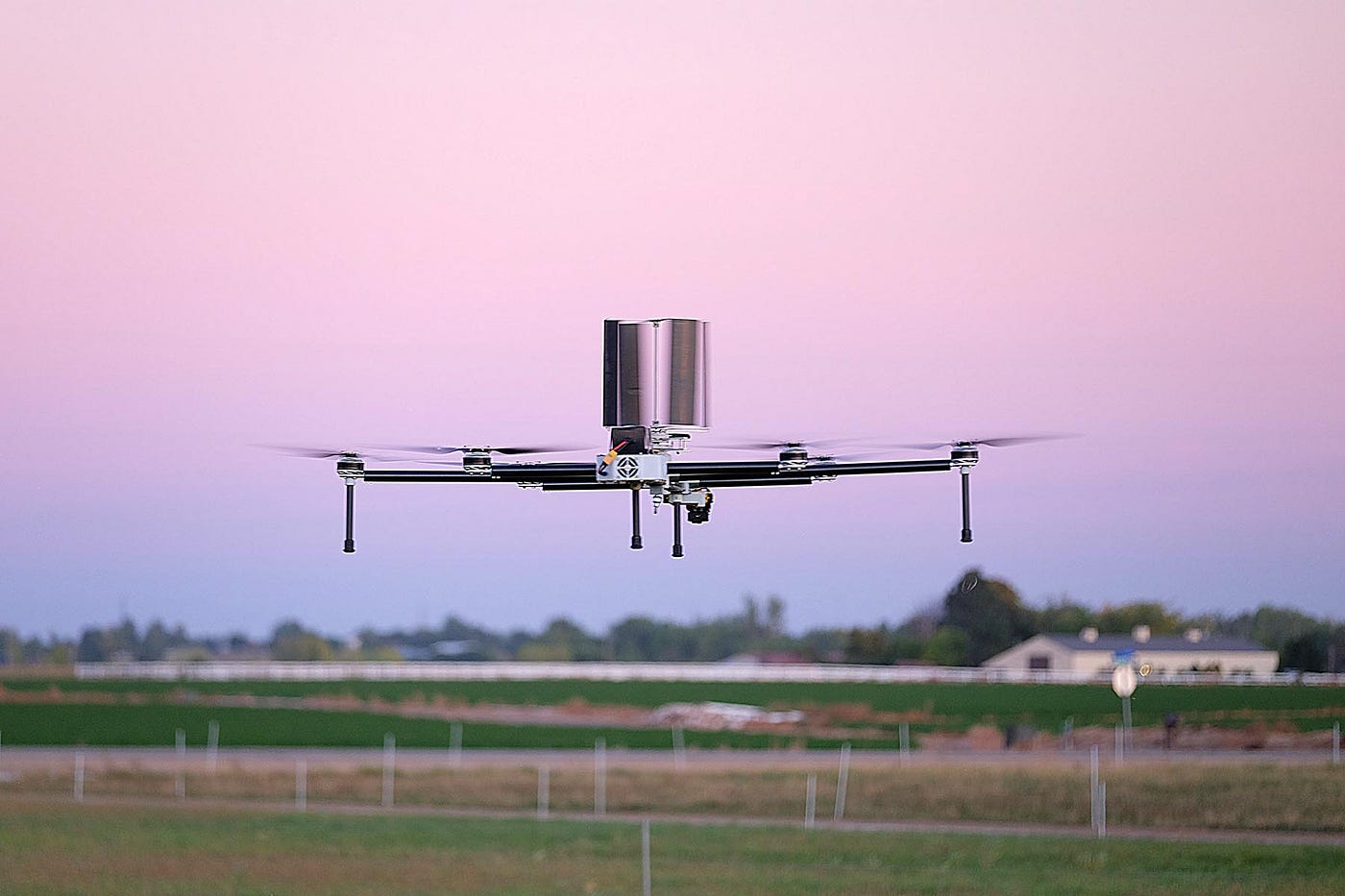July 15, 2022
Take 6: Zach Adams, Pitch Aeronautics

Zach Adams flies an F-15E Strike Eagle for the United States Air Force, performing air-to-air and air-to-ground missions; he earned his Ph.D. in mechanical engineering from Purdue University’s College of Engineering in 2016; he also designed and developed the first-ever cyclorotor hybrid drone.
With support from Purdue Foundry, an entrepreneurial hub for Purdue-connected entrepreneurs and their companies, Adams launched the company Pitch Aeronautics to bring the cyclorotor hybrid drone, called Astria, to market.
“Most drones tilt and lean in order to move, which makes it difficult for them to perform precise tasks,” Adams said in an article on the School of Mechanical Engineering’s website. “Adding a cyclorotor allows the vehicle to stay level, while moving quickly and precisely in any direction. This enables the drone to perform precise tasks in dangerous or precarious situations.”

In addition to the article, the School of Mechanical Engineering produced a 3-minute YouTube video about Zach and his achievements, including starting Pitch Aeronautics. You can watch the video online. Pitch Aeronautics also has launched a StartEngine page with information for potential investors.
Adams generously shared his time to answer our questions.
Question: What pearl of wisdom you can provide to someone interested in commercializing their work?
Zach Adams: Always think about sizing: Is there a big enough market for your product? Does your product make a meaningful difference? i.e., tiny solar panels and personal wind turbines won’t replace the coal powerplants. It might take a big vision, and perspective adjustments, to make an effective commercialization strategy.

Question: What technology or discovery in your field is the most underappreciated?
Adams: In aviation, hybrid-electric propulsion systems for aircraft have yet to get the attention they deserve. The high power density of electric propulsion systems combined with the tremendous energy density of liquid fuel systems could make some pretty neat aircraft. If super cars are doing this, why have aircraft failed to catch up?
Another major area — which we are leveraging in our drone — is camera-based navigation and positioning. This technology is starting to make it possible for drones to know exactly where they are and how they are moving without GPS. This is a game changer when you need to fly with inches of precision rather than tens of feet. After all, vision is how most animals negotiate their environment.
Q: In the movie of your life, who would you like to see play you?
Adams: Harrison Ford. I appreciate how many of his characters are sincere with a penchant for adventure and technology. He would make me look a lot cooler than I am.

Q: What is a discovery you still hope to make in your career?
Adams: I have always wanted to design, build and fly my own unique aircraft design. I am proud of the progress our team has made designing, building and flying Astria. It would be exciting to make a similarly unique piloted aircraft.
If I pivot back into academic research, I would love to study and understand the aerodynamics of wings as they go through a tightly curved path. This occurs in cyclorotors; wings do not produce the same lift and drag forces they do going in a straight line on an airplane. Discoveries in this area of “curvilinear flow aerodynamics” could enable better cyclorotors.

Q: What is a discovery you hope to see in your lifetime?
Adams: I hope to see a major climate engineering project successfully reverse global warming. This isn’t my area of expertise, but it would be cool to see engineers and scientists find a way to heal the planet a bit.
Q: Was there ever a time you felt like the underdog? How did you handle it?
Adams: My first semester in graduate school was eye opening. My initial research advisor and I were not on the same wavelength and I had to change professors. In tandem, I struggled with coursework I didn’t have enough background in. I know the first semester in grad school is tough for everyone, but I really thought I would fail out. Thankfully, one of my mentors talked me in to setting aside my personal expectation of success or failure and just keep working. I changed advisors, came up with a plan, and just put my nose to the grindstone. Sometimes you can do more than you think!
Q: What’s one habit you’ve developed that makes you more effective/efficient in daily life or work?
Adams: I always try and prioritize tasks so I am waiting on someone else or a time-dependent process. When you’re cleaning the house it’s better to start the dishwasher and washing machine first so that they are working while you are.
Thank you again Zach Adams for participating in Take 6!

